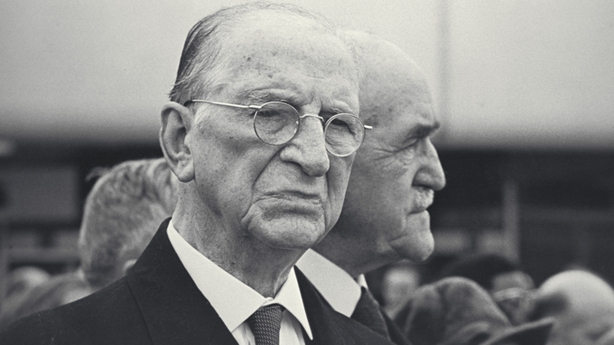When Daniel O’Connell won his astonishing victory in the Clare by-election, forcing the British government to stand up to King George and finally bring in Catholic Emancipation, Daniel stood at the bar of the House of Commons in May 1829 and dared them to try to keep him out now that Catholics could at last be MPs. He said he was there’ as a representative of the people’. It was probably the first time that had been said in the House of Commons and what a thing to be able to say: that you represent a whole people. And yet that’s what an Irish President, with even more constitutional and electoral authority than Daniel O’Connell can say: I represent the Irish people.
That’s why it matters who the President is. That’s why presidential elections are important. There’s been an amount of criticism of the level of debate in this presidential election campaign and yes, it hasn’t been of a high quality. But the election itself matters because whoever we choose has to represent us on some of the most sensitive occasions for the people of this country. And they have to remember us, all of us, in a way that party politicians don’t. And generally that’s what our Presidents have done.

Take De Valera. I could have met De Valera once and I chose not to go. Dev was leaving the Park in 1973 and he asked all the staff in RTE to come out and visit him. We didn’t hold much with Dev in our house, so I stayed behind finishing my work as all the buses left . And the only person who was hurt by that in the end was me. I had missed out as a journalist and as a citizen
But I soon understood that Dev took his role as representative of the people seriously. When Fianna Fáil lost the 1973 election, Dev had to deal for the very first time with a government which was neither Fianna Fáil nor one-party. At the traditional dinner for the cabinet at Áras an Uachtaran, Dev expressed his big worry: that coalition governments are unstable and fall apart.
As the cabinet left, Conor Cruise O’Brien remembers Dev calling after them at the door: 'Remember! Ye have to stick together!’ It was a disinterested piece of advice from someone who had been a divisive figure in politics, but took his job as President seriously.
Erskine Childers who followed him was a most popular President. We’re inclined to forget that now but Childers criss-crossed the country, visiting small communities and bolstering their work. He turned up twice at ceremonies in my home village of Borris’s Town Hall and that was in a presidency cut short by his death after only a year.
"We have almost always elected fine presidents, of a much higher calibre than your standard Dail politician."
Cearbhall O Dalaigh resigned in protest after a cabinet member called him a thundering disgrace because the President had referred a Bill giving special emergency powers to the police to the Supreme Court. The cabinet member wasn’t sacked as he should have been and O’Dalaigh resigned to protect the dignity and independence of the Presidency. He was right.
President Paddy Hillery refused to let party loyalties influence him. He wouldn’t take a phone call from his former Fianna Fáil colleagues to persuade him to refuse Garret FitzGerald a dissolution of the Dail to call an election in 1982. Hillery had a cool relationship at best with Haughey as Taoiseach. Haughey made no effort to improve the tiny Presidential allowance of €15,000 until two months before Hillery was due to leave, and when Haughey expected that his friend Brian Lenihan would become President. To Haughey’s chagrin, it was Mary Robinson would benefit for the improved conditions.
Mary Robinson stretched her presidency to include community groups, prisoners, gays and lesbians. She was the first Irish President to meet the British Royal Family and to respect the many Irish people who fought in the two world wars by attending the Armistice Day Service at St. Patrick’s Cathedral, something Paddy Hillery wanted to do but the government wouldn’t let him.
Mary McAleese didn’t just build bridges with both communities in the North. As a Roman Catholic, she publicly took communion at a Church of Ireland Service, defying church rules, and supporting the tradition of liberal Catholicism which has sometimes struggled to survive in this country.
We have almost always elected fine presidents, of a much higher calibre than your standard Dail politician. That’s because we don’t vote on local constituency ssues, on what-can-you-do-for-me issues, but we vote in a countrywide constituency on the broader, less selfish issue of the common good.
‘I represent the Irish people’. We have always elected the finest candidate to be able to say that. Why should we do any differently on Friday?







